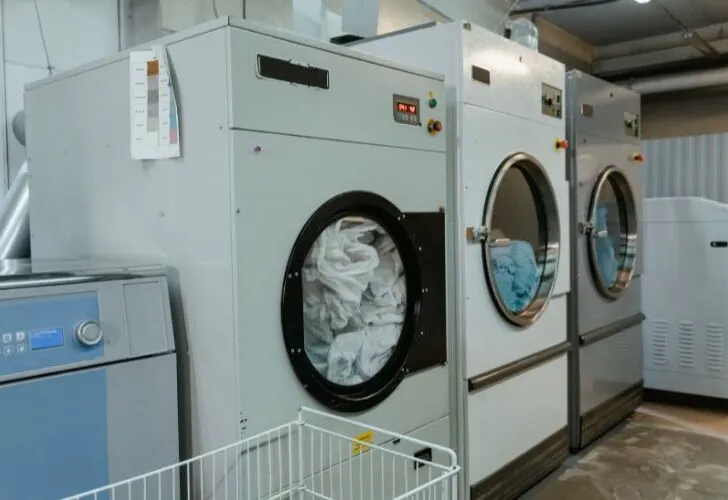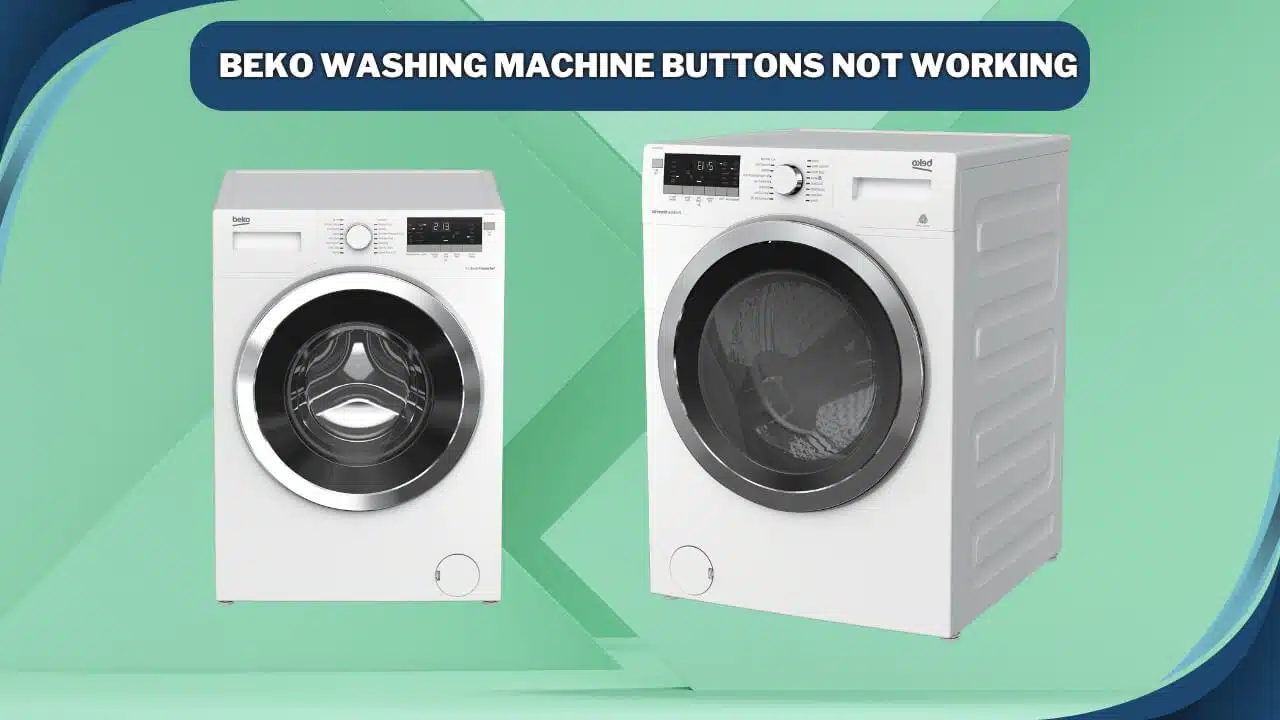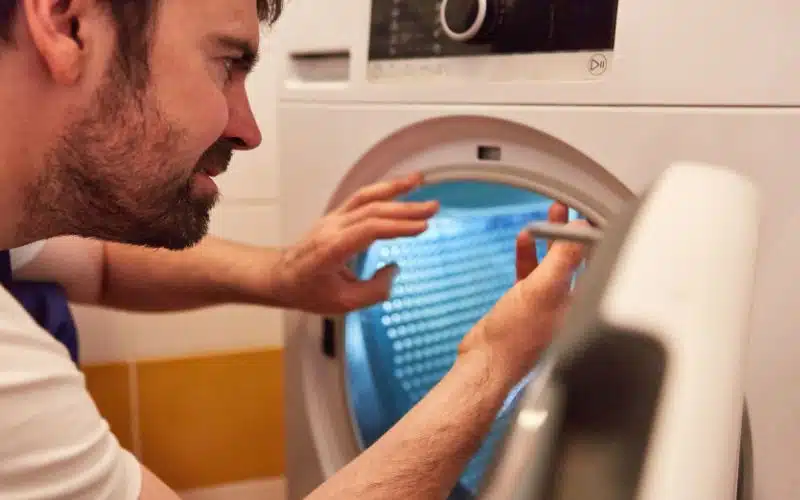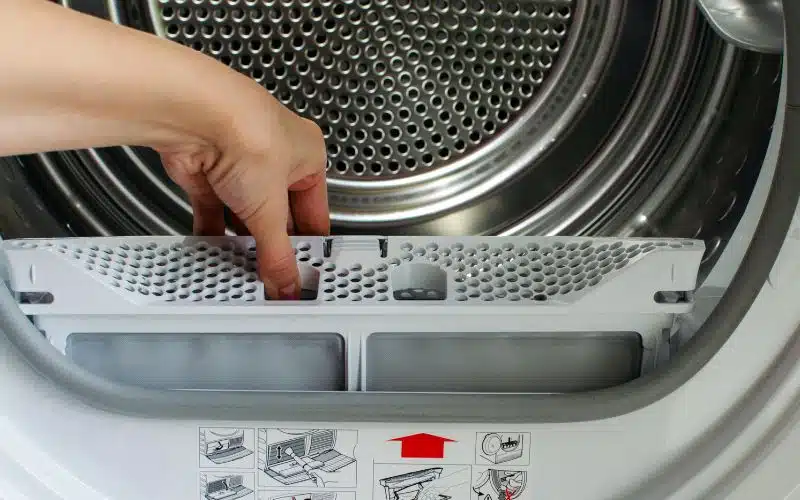Washing machines have made laundry and clothes drying easier, better, and faster than in ancient times.
They come in various models and forms, each specifically for the function it will be carrying out. Consequently, if you’re wondering if washing machines are always electric?
Washing machines are always electric and need electricity to power and function. However, their dryers might either be electric or gas, which means they can be fully or partially electric. Also, there are few manual washing machines available in recent times.
In this article, I will tell you whether a washing machine is electric or gas and the differences between electric and gas washing machines.
By the end, you’ll be able to make your buying decision and select between an electric and gas washing machine.
Are Washing Machines Always Electric-Powered?

99% of all washing machines are electrically powered, which means they function and operate with electricity.
The other 1% lies on new manual washing models, which are small and do not need electricity to work.
However, washing machine dryers can either be electric or gas. Thus, washing machine dryers may use electricity or gas to generate heat for drying.
A washing machine is called electric or gas, depending on its uses to generate heat for drying.
Thus, gas washing machines are washing machines that use gas to produce heat for drying clothes after washing. They work with electricity but partially use gas for their drying.
Meanwhile, electric washing machines are fully powered and utilized with electricity. A similar characteristic of electric and gas washers is that they use air and heat for laundry.
But, how they generate heat for drying differs in electric and gas washers. Washing machines with electric dryers use heating elements powered by electricity for drying.
After that, electrons present in the dryer produce heat blown to the dryer drum by the blower.
On the other hand, gas washing machines have igniters for producing heat despite being powered by electricity.
This igniter in gas washers burns propane or natural gas to generate heat for the dryer.
How Do You Know If a Washing Machine Is Gas or Electric?
You can know if a washing machine is a gas or electric by checking out the back of the machine. A washing machine’s back, plug, and wire type will enable you to determine its type.
An electric washing machine has heavy plugs with no gas line or exhaust pipe. Electric washers have larger plugs with three to four pongs.
Also, electric washers possess grounded 120v, 220v, or 240v electrical outlets to produce heat and power for the entire washing machine.
However, you’ll have a gas line at its back to know if a washing machine is a gas. This gas line connects to a gas valve behind the washer’s dryer with a copper or flexible gas connector.
Also, there’ll be the presence of exhaust pipes that exit the outside of your home.
How Do You Know If You Need a Gas or Electric Washing Machine?
You can determine the type of washing machine you need by considering many circumstances governed by your personal preferences.
Thus, after analyzing the strengths and weaknesses of both washers, you can make decisions on the one you need.
Below is a simple comparison between gas and electric washing machines to help determine the one you need.
#1. Cost
The gas washing machine is more expensive than the electric washer at the time of purchase. However, you’ll spend less on operational bills, maintenance, and faulty repairs.
Also, gas washing machine installations are expensive, and you must employ a licensed plumber.
You need a professional plumber to install your gas washer to prevent potential gas leakage.
On the other hand, electric washing machines purchase and installation are affordable, depending on the model. But, their repairs and maintenance are more costly compared to gas washers.
#2. Safety
The safety of using both washing machines depends on the installation. Proper installation and regular maintenance will prevent electrocution and explosion.
#3. Installation
Installation is less complex in electric washing machines than in gas washing machines. You only need a 240 volts outlet and a vent which you’ll hook up and plug the 240v outlet into.
However, you’ll need a standard electrical outlet, gas hookup, and a copper or flexible wire. You also need a technician to check for leakage after the installation.
The table below contains some differences between electric and gas washing machines.
| Electric Washing Machine | Gas Washing Machine |
|---|---|
| Ultimately uses electricity to function. | It partially uses gas to operate. |
| Requires a 220 or 240 volts outlet to power the washing machine. | Possess copper or flexible plug connected to a gas line to function. |
| It uses metal heating coils to create heat. | It uses natural gas or propane to produce heat. |
FAQs
#1. Which Is More Economical: A Gas or an Electric Washer?
A gas washer is more efficient and economical, and its dryer dries clothes faster than an electric washer.
#2. How Much Electricity Does a Gas Washer Consume?
An average gas dryer uses about 150 watts of electricity and 0.11 therms of natural gas per hour.
#3. Will a Gas Washer Run Without Gas?
Electric and gas washers need electricity, but gas washers also need a gas hookup. This gas hookup enables the washing machine to generate heat for drying clothes.
#4. Can You Switch From Gas To Electric Washing Machine?
Yes, you can switch from gas to electric washing machine, but it’s pretty eco to do. Knowing the gas washing model and its specifics is essential before switching.
Final Thoughts
Check the back and the label on the washer to know if a washing machine is gas or electric. The washing machine’s label and plugs will give you a clue about the type of washer.
In addition, choosing the type of washing machine you need should focus on your individual needs.
After that, always have a professional handle your washing machine installation and repair.





